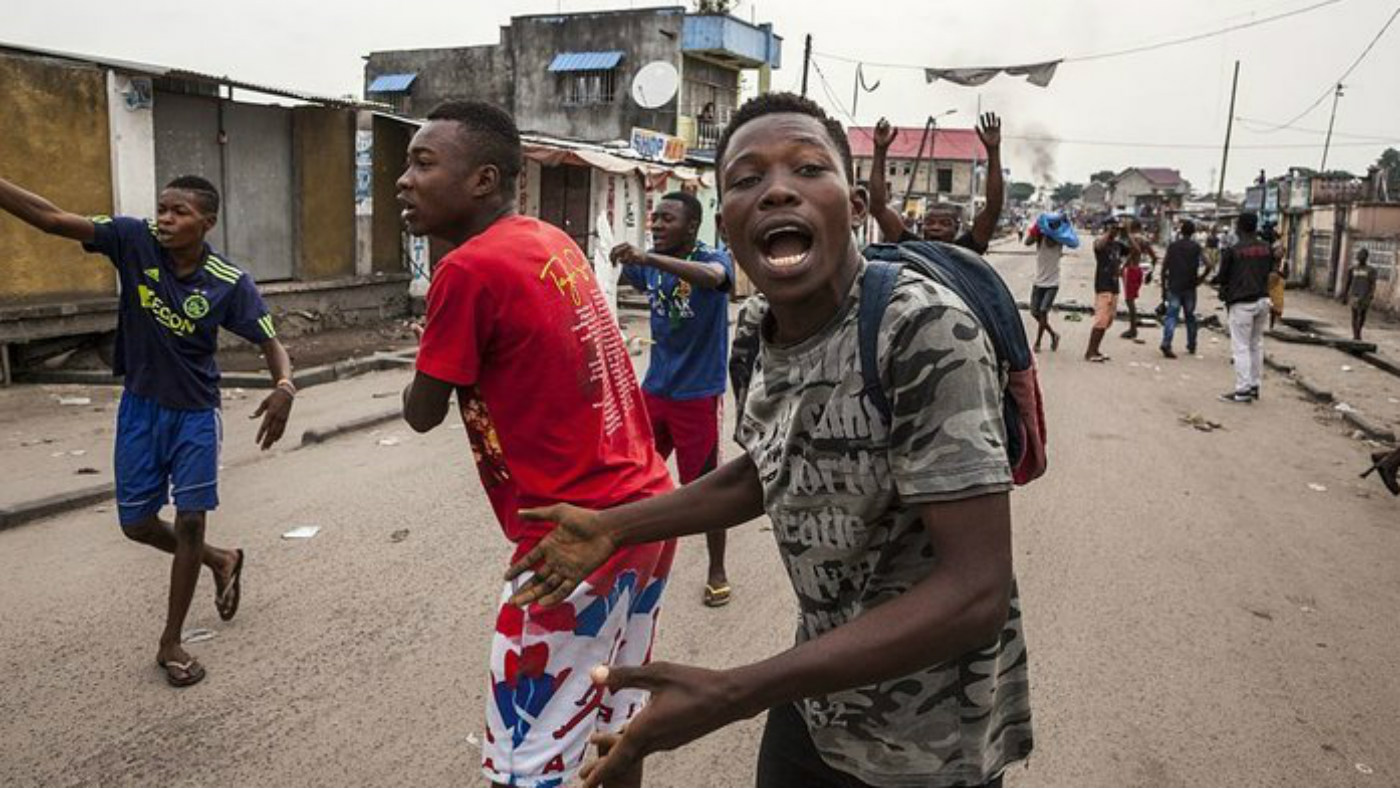Congo in chaos as death toll mounts
President Joseph Kabila condemned by international community for refusing to leave office at end of term

A free daily email with the biggest news stories of the day – and the best features from TheWeek.com
You are now subscribed
Your newsletter sign-up was successful
Unrest is mounting in the Democratic Republic of the Congo after President Joseph Kabila refused to leave office.
Human rights groups and the UN claim at least 26 people have been killed in the capital Kinshasa and the south-east of country over the last three days as protesters clash with security forces.
Kabila's second term expired at midnight on Monday and while he has said he will respect a constitution that bars him from standing for a third term, many fear he intends to remain in power indefinitely.
The Week
Escape your echo chamber. Get the facts behind the news, plus analysis from multiple perspectives.

Sign up for The Week's Free Newsletters
From our morning news briefing to a weekly Good News Newsletter, get the best of The Week delivered directly to your inbox.
From our morning news briefing to a weekly Good News Newsletter, get the best of The Week delivered directly to your inbox.
In a strongly worded statement, the US government said DRC officials had an "obligation to… respect the rights of Congolese citizens to assemble peacefully and express their opinions without fear of retaliation, retribution, or arbitrary arrest".
It added that it was "unfortunate" security forces had "responded to this expression of democratic sentiment with teargas, arrests, and warning shots", warning: "We remain ready to impose additional sanctions."
The US and European powers had already imposed travel bans and asset freezes on individuals close to Kabila because of his poor human rights record. Belgium, the former colonial power, and France have both said they will "reexamine" their relationship with the DRC government.
However, despite condemnation from the international community, "the sporadic nature of the protests – and the apparent success of heavy-handed police tactics – is likely to be seen as a victory for the government and will not encourage any concessions", says The Guardian.
A free daily email with the biggest news stories of the day – and the best features from TheWeek.com
Kabila's supporters say logistical and financial issues mean a fresh election cannot take place until 2018 and the president has a duty to remain in power until then.
The "main opposition leader has called for peaceful resistance to defy Kabila and force him to go," says NPR. Etienne Tshisekedi made the appeal in a video message posted on YouTube.
-
 The EU’s war on fast fashion
The EU’s war on fast fashionIn the Spotlight Bloc launches investigation into Shein over sale of weapons and ‘childlike’ sex dolls, alongside efforts to tax e-commerce giants and combat textile waste
-
 How to Get to Heaven from Belfast: a ‘highly entertaining ride’
How to Get to Heaven from Belfast: a ‘highly entertaining ride’The Week Recommends Mystery-comedy from the creator of Derry Girls should be ‘your new binge-watch’
-
 The 8 best TV shows of the 1960s
The 8 best TV shows of the 1960sThe standout shows of this decade take viewers from outer space to the Wild West
-
 Epstein files topple law CEO, roil UK government
Epstein files topple law CEO, roil UK governmentSpeed Read Peter Mandelson, Britain’s former ambassador to the US, is caught up in the scandal
-
 Iran and US prepare to meet after skirmishes
Iran and US prepare to meet after skirmishesSpeed Read The incident comes amid heightened tensions in the Middle East
-
 Israel retrieves final hostage’s body from Gaza
Israel retrieves final hostage’s body from GazaSpeed Read The 24-year-old police officer was killed during the initial Hamas attack
-
 China’s Xi targets top general in growing purge
China’s Xi targets top general in growing purgeSpeed Read Zhang Youxia is being investigated over ‘grave violations’ of the law
-
 Panama and Canada are negotiating over a crucial copper mine
Panama and Canada are negotiating over a crucial copper mineIn the Spotlight Panama is set to make a final decision on the mine this summer
-
 Why Greenland’s natural resources are nearly impossible to mine
Why Greenland’s natural resources are nearly impossible to mineThe Explainer The country’s natural landscape makes the task extremely difficult
-
 Iran cuts internet as protests escalate
Iran cuts internet as protests escalateSpeed Reada Government buildings across the country have been set on fire
-
 US nabs ‘shadow’ tanker claimed by Russia
US nabs ‘shadow’ tanker claimed by RussiaSpeed Read The ship was one of two vessels seized by the US military